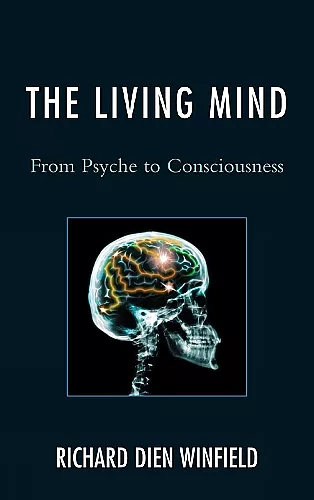The Living Mind
From Psyche to Consciousness
Format:Hardback
Publisher:Rowman & Littlefield
Published:7th Jul '11
Currently unavailable, and unfortunately no date known when it will be back

As enthusiasm for computational models of the mind has waned and the revolution in neuroscience has progressed, attention in philosophy and cognitive science has shifted toward more biological approaches. The Living Mind establishes that mind cannot be immaterial or reduced to mechanistic or cybernetic processes, but must instead possess a subjectivity embodied in an animal organism. On this basis, the work proceeds to show why mind involves a pre-conscious psyche, a non-discursive consciousness and self-consciousness, and an intelligence overcoming the opposition of consciousness. In so doing, The Living Mind provides a detailed account of the psyche and consciousness, paving the way for conceiving the psychological enabling conditions of rational theory and practice.
Winfield has achieved a fundamental, systematic and comprehensive re-thinking of the problem of mind. Grounded in a critical reconstruction of Aristotle and Hegel, it draws upon a broad range of ancient, modern and contemporary philosophers to establish that mind must necessarily be materially embodied in living, animal organism, and must manifest itself in the three distinguishable phases of psyche, consciousness and intelligence, thoroughly exploring the sometimes surprising implications of such an analysis. It answers the need for a thoroughly non-Cartesian account of mind better than any available alternative. I would not teach the philosophy of mind again without using this work. -- Philip T. Grier, Thomas Bowman Professor of Philosophy and Religion, Dickinson College
Winfield (Univ. of Georgia), best known for his work on Hegel and in social/political philosophy, here turns his attention to the philosophy of mind. The theory he offers, which is heavily influenced by both Hegel and Aristotle, resists categorization in the standard terms of the contemporary debate. Though Winfield firmly rejects the view of the mind as immaterial, he also denies that one can reduce mentality to material or functional processes. In his view, mind is essentially embodied in animal form and thus is best conceived of in a "zoological" manner. This comes closest, perhaps, to the kind of nonreductive materialism associated with John Searle. In contrast to Searle's view, Winfield sees mind as comprising three distinct elements: a preconscious psyche, a nondiscursive consciousness and self-consciousness, and an intelligence. The book is strongest in its arguments against Cartesianism and its efforts to establish the material preconditions of mind. Summing Up: Recommended. Upper-level undergraduates and above. * CHOICE *
ISBN: 9781442211551
Dimensions: 240mm x 165mm x 26mm
Weight: 635g
328 pages